Sarah Elizabeth Ippel on The Cultivate Project and Global Citizenship
Key Points
-
School founders need to start with some inquiry and awe somewhere in their life. Look at international examples and as many examples of schools as possible. Sometimes we have these ideas in our head, but we need to open our blinders.
-
As school leaders, we have to take a leap of faith at some point.
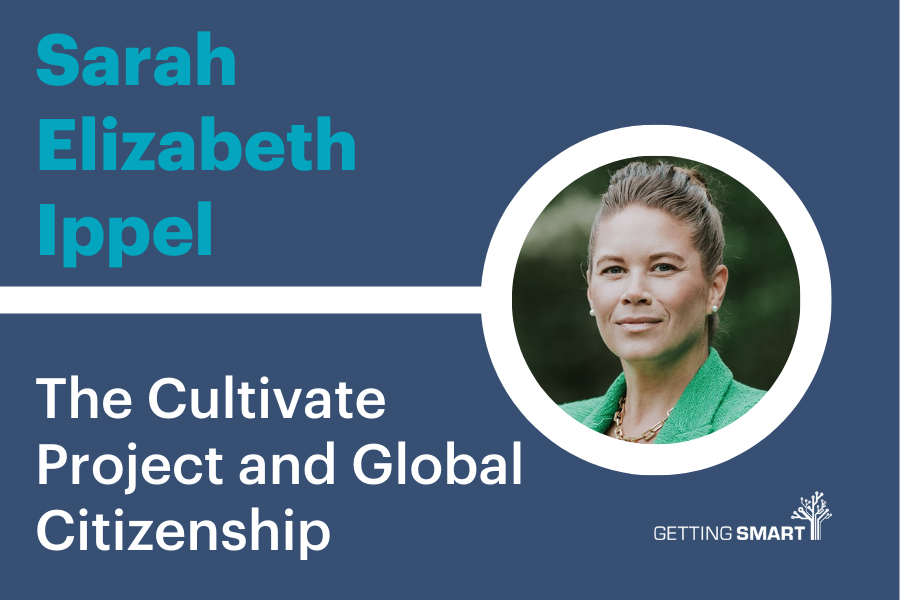
On this episode of the Getting Smart Podcast Nate McClennen is joined by Sarah Elizabeth Ippel, Founder and Executive Director of the Academy for Global Citizenship, a public K-8 charter school that opened in 2008 on the southwest side of Chicago. ACG just moved into a brand new campus in partnership with the Cultivate Collective project — a multi-generational community hub that includes an urban farm, health center, and adult education programs.
Together, Nate and Sarah discuss her journey to founding the Academy for Global Citizenship, how she was shaped by international travel, her observations of both innovative and inequitable education systems, and her non-traditional way of navigating the educational ecosystem.
Sarah Elizabeth Ippel
Sarah Elizabeth Ippel’s life mission is to cultivate thriving communities. When she was 23 years old, she rode her bicycle to the Chicago Board of Education with a request: to reimagine what is possible in public education. Three years later, in 2008, the Academy for Global Citizenship (AGC) opened in a former dental tool factory on the city’s under-resourced southwest side where Sarah Elizabeth serves as its Founder and Executive Director. A Chicago Public Elementary School on a global mission that serves 96% minority children and families, AGC is developing the next generation of critical thinkers and mindful leaders to positively impact their communities and the world beyond.
Sarah Elizabeth completed a yearlong Entrepreneur in Residence Fellowship with Laurene Powell Jobs’ Emerson Collective where she contributing to authoring AGC’s book titled “Reimagine Education: Designing a School to Change the world” and is continuing this work to build an Institute to disseminate evidenced-based strategies. Sarah Elizabeth spearheaded the plans for the “school of the future” and community learning hub in Chicago called Cultivate Collective to serve as a prototype for the United States and that demonstrates cutting-edge education and sustainability practices.
During her five-year term as Vice President of Education on the governing board of the United Nations Association, Sarah Elizabeth fostered broader implementation of The Growing Connection, an organic gardening initiative established to cross-culturally connect children and educators across continents through technology. She has also served on the Chicago Chapter of the United States Green Building Council Green Schools Advocacy Committee, Chicago Public Schools’ Environmental Action Plan Taskforce, and is a founding member of Conservation International’s Generation Conservation and Adrian Grenier’s Lonely Whale ocean conservation foundation. Sarah Elizabeth’s additional leadership and civic contributions have also included executive board memberships with Northwestern Memorial Hospital and the Art Institute of Chicago. She currently serves on Partners in Health’s Summits Education board that is scaling educational models in rural Haiti.
Sarah Elizabeth was selected as a United States Delegate to Terra Madre in 2010, where she met with representatives from over 60 nations to discuss the sustainability of our local and global food systems. In 2011, she was named one of Monocle’s Top 20 International Pioneers in Education and visited the White House to receive a national award from the Obama administration. In 2012 and 2013, Sarah Elizabeth was appointed as one of 100 Delegates from 20 countries across the globe who assembled for the G8 Young Global Leaders Summit, preparing recommendations for a communiqué for President Obama and the U.S. Department of State. In 2013, Sarah Elizabeth was recognized by Forbes as one of the nation’s “top five game changers in education”, was the recipient of the GOOD 100 list of “people pushing the world forward through doing”, was named a Bluhm Helfand Social Innovation Fellow and was selected by the Council on Global Affairs as an Emerging Leader Fellow. In 2014, Sarah Elizabeth was recognized as one of the top 100 US entrepreneurs and was honored at the United Nations. In 2017, the British Council honored Sarah Elizabeth as a finalist for the University of Cambridge Alumni Award for her “exceptional contribution and commitment to creating positive social change and improving the lives of others.” Most recently, Crain’s Chicago Business recognized her as a Notable Leader in Sustainability. When she is not traveling around the world, speaking about the Academy for Global Citizenship’s vision for systemic change, Sarah Elizabeth enjoys honing her skills as an urban farmer and beekeeper.
Links:
- Sarah Ippel Linkedin
- Academy for Global Citizenship
- Cultivate Collective
- Carnegie Report
- AGC Model
- Interview with Sarah
- La Paz Podcast with Abel McClennen
Outline
- Introducing Sarah Elizabeth Ippel: A Visionary in Education
- The Founding Story of Academy for Global Citizenship
- Evolving Education: The Impact of AGC and Future Visions
- Expanding the Vision: Cultivate Collective and Beyond
Nate McClennen: Hello, everyone. This is Nate McClennen, and I’m excited to dive into another Getting Smart podcast to see what’s new and interesting in education. So, I was thinking about the podcast and thinking that 20 years ago, I had the opportunity to join a team launching a school. It was hard. It was joyful. It was rewarding all at the same time.
And I remember meeting every single morning and every single afternoon. So today, I was thinking we would talk about what it takes to start, launch, and run a school. As I was researching this podcast, I found a great report from Carnegie Corporation from last year, and it found that 34 percent of schools didn’t even exist in the public sector 30 years earlier. So that means about 17 million public school students are in schools that are less than 30 years old. So, we know there are some amazing lessons to be learned for both those who want to start a school—spoiler, it’s super hard and it’s the most challenging thing you might ever do, but it’s also the most rewarding thing you might ever do—and also those who are redesigning schools who can learn from school launches but need a whole different change mindset. So, with school redesigns and microschools and charter schools and just new public schools launching all the time, I think it’s important that we learn from those who have come before us.
So today, we’re joined by Sarah Elizabeth Ippel, the founder and executive director of the Academy for Global Citizenship, a public K-8 charter school which opened in 2008 on the south side of Chicago. AGC just moved this past fall into a brand-new campus in partnership with the Cultivate Collective project, a multi-generational community hub that includes an urban farm, a health center, adult education programs, and much, much more, which we’re going to learn about today. So welcome, Sarah Elizabeth. So excited to hear about the work you’re all doing locally in Chicago and also your vision for how your project can have a global impact.
Sarah Elizabeth Ippel: Thanks, Nate. I’m so thrilled to be here.
The Journey of Starting a School: Challenges and Rewards
Nate McClennen: Alright. So, let’s start with my favorite question, which is a memory of your most impactful learning experience when you were growing up. So, what was it? Why did it impact you so much?
Sarah Elizabeth Ippel: Throughout my childhood, I spent a lot of time in the forest. I grew up in a family with five kids. We didn’t necessarily have resources to go on trips. So, my parents would pack us up in the family van and take us into the woods where my grandparents had this piece of land with no electricity and no running water. We would spend our days and our nights and our weekends exploring, building forts, climbing trees, and looking at bugs. I look back on my educational experiences and my time in school, and I can’t help but think about all that time spent in nature, all the unstructured play, and all the time to wonder, and how that contributed to me falling in love with the natural world.
Nate McClennen: I think we’ve talked about this before, but I had a similar upbringing. We grew up on a small farm, and we were outside all the time. I never considered it learning until I was a teacher and an educator. I said that was the most impactful part of my childhood—being outside in forts, chasing fireflies, playing in the creek. So, we share a love for the natural world and also this idea of awe and inquiry. It just happens when you’re outside of your house or outside of the classroom. It feels like that part of learning is the work to be done to transfer into the school systems themselves. So, let’s now fast forward from my background reading and our previous conversations. You’re pretty young, in your early twenties, when the idea of the Academy for Global Citizenship, AGC, emerged. So, what’s the origin story? What were the key milestones and some hurdles early on? And what are your biggest memories about that first year? That’s a lot of questions, but describe the scenario for us.
The Founding Story of Academy for Global Citizenship
Sarah Elizabeth Ippel: Well, a few years later, after leaving Michigan and leaving the country for the first time, I ended up going to graduate school in England. And for me, this was a mind-blowing, eye-opening experience where I was suddenly surrounded by people from all over the world who had different perspectives, who spoke different languages. And although I was not studying education in graduate school, I became so intrigued to understand the state of our world and expand my own horizons by visiting schools in other parts of the world. So, on the weekends, I would pack up my dissertation writing, put on my backpack, and stay in youth hostels all over—initially all over Europe—and started visiting schools as a way to learn about how different people were developing these perspectives about the world. Suddenly, at some point in that first year, this curiosity shifted to more of a determined quest to really study and understand these international systems of education. That eventually took me to schools in over 100 countries, and as you can imagine, Nate, throughout that experience, I visited some parts of our world that have extraordinary education systems, right? They’re known for their outcomes. They’re known for their innovation. And at the same time, I spent many of those months and years in some of our most developing parts of our world and saw the extraordinary disparities and challenges and inequities that exist on a global level. When I moved to Chicago, what I quickly realized is that I was living in this city where this was not just a global issue, that these systemic inequities and challenges existed in my own backyard. And being in my early twenties, being naive and idealistic, I thought we’ve got to do something about this. I woke up with this conviction and felt that as a member of this community in Chicago, we needed to think differently. And we just needed to fundamentally reimagine public education. And I thought, after all of these things that I’ve seen all over the world, it just seems so straightforward, right? That we needed to be cultivating this next generation of mindful leaders and global citizens. So, I started writing what ultimately became a 600-page proposal. I jumped on my bike when I was 23, rode down Clark Street to the Board of Education in Chicago, and explained all of this to them, thinking that of course, they would pat me on the back and say, “This sounds like a magnificent idea.” And that is absolutely not what happened. Having had no track record, no experience, never taught in a school, and having no education credentials, it took a few years to convince the Chicago public school system to approve this idea as a public charter school. It ultimately happened on the third try after three years in 2007. And then we had eight months to turn those 600 pages into reality in this former dental tool factory in one of the most underserved parts of our city.
Nate McClennen: That is quite a story. Okay, I have a couple of follow-up questions. Number one, it’s amazing that you were able to visit 100 different countries and see schools there. Quick sidetrack: what was your dissertation on when you were over in England?
Sarah Elizabeth Ippel: I wrote my dissertation on social conceptions of giftedness. So, I was in the political science field, very interested in social and developmental psychology.
Nate McClennen: Gotcha. But at that point, did you enter your doctoral program thinking that you wanted to do schools, or did that happen prior or after as you started to do this traveling and experience?
Sarah Elizabeth Ippel: It happened after. Yeah, I had no interest in schools when I started grad school.
Nate McClennen: First year, you have this memory of pre-opening, you’re riding your bike. Okay, year one, what’s a memory from year one that you have? Most of it is probably a blur, given the work that you’ve done. But what is a year one memory that’s sticky for you?
Sarah Elizabeth Ippel: My goodness, there are many different ways that I can answer this question, but we did some pretty funny things. We were a very small group of idealists, right? We’re all in our early twenties. Suddenly, we get this approval to open a public school. So, we thought to ourselves, gosh, we need to see if we can get everything donated, and then we can go to IKEA to buy the rest of the things so that we can be really scrappy with the limited dollars that we have to open the school. So, we would rent U-Haul trucks and drive around the city, picking up all sorts of odds and ends. I remember somebody told me one day that they had carpet squares, and we were like, this is perfect. So, we would drive around picking up all these things, and then we would spend hours and days—and sometimes we would sleep over at the dental tool factory—assembling this IKEA furniture and installing the carpet. It was a scrappy, hands-on time.
Nate McClennen: I love it. You think about also just the teamwork and team building and collaboration and all those things that you’re developing. We now formally call them transferable or durable skills or 21st-century skills, but you all were iterating on that in real time. I appreciate that. Okay, so now, can you describe what AGC looks like today and how it’s different from what you imagined? What have you learned from your own iterations of the model? Because I assume it doesn’t look exactly the same as what you put on those 600 pages. Maybe it does. I don’t know.
Evolving Education: The Impact of AGC and Future Visions
Sarah Elizabeth Ippel: Yeah, it’s interesting when I think about this question and I look back and I laugh, in so many ways, because I think, what could I possibly have known in my early twenties? I still feel like I’m learning today, right, after two decades of doing this work. But I look back and chuckle. And yet, what’s so interesting is after two decades of all sorts of growth and evolution and strategy and really smart people plugging into this team, we have these six pillars that we developed before the school even opened that we said, these are the six things, right? These are the six foundational aspects of our model. And what’s so interesting is, although we’ve revisited those over the years, they have remained constant. But the way that they take shape and what they have become to mean to us has really deepened. And I think an example of what that means is student agency. Now that we have hundreds of children that have gone through the school, we’ve got graduates and alumni. It’s so interesting to think about how an aspect of our model, for example, global citizenship and all that means and represents, has evolved. We had a group of eighth graders come to us when there were a lot of critical things happening in our country, conversations about race and ethnicity and racism. They came to us and said, we need an anti-racist framework and policy. So, it’s an example of something where this sort of collective, a collective of people, students and teachers and families have really shaped and brought to life—literally brought to life—this spirit of our organization that looks so different than when we were just opening our doors almost 16 years ago.
Nate McClennen: Yeah, it’s amazing. It feels to me that a lot of school founders have these central tenets that don’t change, but the evolution of those is really dependent on the community that you’re involved with. It’s this co-evolution where it doesn’t matter really. It matters a little bit what the founding group thinks and they articulate a language and a vision. But it comes to life by the students and the families and the teachers and everybody else who evolves with it over the years. So, yeah, I really appreciate that. Did you start out with the International Baccalaureate (IB) Primary Years and Middle Years Program? Did you start out with that or did you adopt that along the way?
Sarah Elizabeth Ippel: We did start with the IB program. It took us time to go through the authorization process, but that was one thing that we knew from the get-go. It was foundational to our ethos and model. So, we did open our doors implementing the International Baccalaureate program on day one.
Nate McClennen: And a lot of your students, you had to recruit a first group of students. Was it all currently your K-8, and you’ve opened an early childhood or pre-K now with your new campus? Did you start K-1-2 and then grow up from there, or did you start K-8? What was your opening model?
Sarah Elizabeth Ippel: We started with kindergarten and first grade. Those first graders grew into our second-year class, and we grew the school in that way.
Nate McClennen: Got it. Okay, let’s dig into the name a little bit. So, global citizenship. You’ve talked a lot. I’ve heard those words come out in a variety of places from your description of some of the pillars to also your travels before you even opened up the school. So, what does that look like daily in the program? And you have green and sustainability and healthy living and social justice. All these things show up over and over again in what you’ve written and what’s on the website, etc. What do your graduates look like when they leave eighth grade? Do they have this ethos of sustainability that they’re embedded with? How do they react to that?
Sarah Elizabeth Ippel: Yeah, this is another example of something that has really evolved. In some ways, if you think about two decades ago, when we started writing the foundational vision of what the school would be, our world was in a different place, politically and socially. There are so many things, even from a climate change perspective. The language and the discourse on a global level have really shifted over the course of the last two decades. For us, global citizenship is really inextricably linked to climate justice, health equity, and food sovereignty. These aspects relate back to the pillars of what is integrated not only into the curriculum and what happens starting at age three that our students are learning about on a daily basis but also into the operations and the way we structure everything from our food program to now being in a fully net-positive energy, climate-resilient, fossil fuel-free campus that we just constructed. We translate that technology and innovation back into the immersive environment that our students are learning about every day as the next generation of environmental leaders.
Nate McClennen: You have this wonderful experience K through eight. They go through this great journey together and co-design and learning and leading through the IB program and these great pillars. And then they leave. Where do they go? What are the reports back? You’ve got a handful of graduating classes now that have graduated out. What have you learned from your alumni?
Sarah Elizabeth Ippel: We have learned and begun to see this before they embark out into the world. We see students who have become social justice activists, global citizen leaders, and students with agency and voice who are spearheading change and impact in their own communities and the world. When they get to high school, we see this taken to a whole other level. Our graduates have a reputation when they enter high schools throughout the city. It’s been exciting to hear these reports of students initiating change and stepping into leadership opportunities. We support our students in applying and entering schools all over the city. As I mentioned, we are an International Baccalaureate school and a dual-language program. All our students have the opportunity to graduate with what’s called the Seal of Biliteracy. So, our students are prepared to enter dual-language high schools, providing them the opportunity to do their chemistry and all their high school classes in two languages. We have students accepted into selective enrollment programs. We have a disproportionate percentage of our students who gain access to those selective programs all over the city. We intentionally located ourselves in one of the most underserved neighborhoods in Chicago, but one that does have an International Baccalaureate high school option for students. Many of our students pursue that path. One of my lifelong or two-decade-long dreams is about to come true, as we are nearing the time we may be ready to hire our first graduate.
Nate McClennen: That would be such a cause for celebration. That’s amazing. Schools that decide to be K-8 often face the question, “What about high school?” Have you resisted that for the last 16-17 years intentionally? What’s your thought on high school?
Sarah Elizabeth Ippel: If we had maybe $100,000 for everyone that asked this question, we would perhaps be able to fund this by now. But we have been very focused on developing the campus we just launched this fall. We needed to prioritize our fundraising efforts on the next phase of our development, explicitly focusing on expanding to build out an entire early childhood aspect of our model. So, we just launched, for the first time this past fall, a program for three- and four-year-old students that includes a Head Start program.
Nate McClennen: You and your team have had this amazing opportunity to redevelop this six-acre piece of land on the southwest side of Chicago into this thing called the Cultivate Collective. Can you, this is an audio, so we can’t show video or an image here, but can you paint the picture of what this thing is now and then what it’s going to look like? Because I go back to that map or that image you showed at some point to me of all the amazing things that are going to be on this plot of land. So, can you describe now and future?
Expanding the Vision: Cultivate Collective and Beyond
Sarah Elizabeth Ippel: Yes. So, two blocks from where our former school was located was a 40-acre public housing project site. The city of Chicago tore down this housing project back in 2011, and the 40 acres were vacant. When we thought about someday having a dream for a future home for our school, we started working with the Chicago Housing Authority, community residents, and neighborhood residents, alongside all our students and families. Our vision kept growing and expanding to think about how we could meet the multi-generational and holistic needs of our community. This culminated in the launch of the Cultivate Collective Hub, which we opened this past fall. It now houses the Academy for Global Citizenship. Our students moved two blocks away, but we are now located in a building that has a federally qualified healthcare center offering prenatal, behavioral, mental health, and pediatric care to our entire community. We have six teaching kitchens, a neighborhood fresh food marketplace where families can access fresh food for the first time in our food-insecure community, walking trails, apiaries, and orchards being developed this spring on a three-acre farm. We are producing a significant amount of fresh food for our community and our food program at the school. I mentioned that we’ve got an early childhood Head Start program and a reimagined learning environment. We’ve taken 20 years of learning from over 100 countries and schools worldwide to rethink the way we design what we call school. That’s what you’ll see there today. There’s a whole second phase to the project we’re soon embarking on, which relates to how we scale and open up this model to the world, how we train the next generation of teachers, and how we welcome students coming on field trips from all over the region. I’m excited to welcome you for a visit.
Nate McClennen: It’s definitely on my list next time I’m in Chicago. Will the housing be rebuilt around it as well? Is that also a parallel set of development that you will be in the center of?
Sarah Elizabeth Ippel: 700 units of housing are in the process of being redeveloped surrounding the six-and-a-half-acre hub. That will be a combination of public housing, affordable housing, and mixed-use market-rate housing. For the first time, residents will have access to these fundamental resources and programs and services offered by the school and Cultivate Collective, another nonprofit organization spearheading much of that community work.
Nate McClennen: Got it. So, is Cultivate Collective running the farms and the apiaries? Is there a co-share between AGC and Cultivate? What’s the relationship between the two?
Sarah Elizabeth Ippel: Yes. Two delineated nonprofit organizations coexist within the Cultivate Collective Hub and have some shared partners. We have a farming partner overseeing urban food production, a federally qualified healthcare center partner running that portion of the project, and AGC focuses on overseeing the public school. Cultivate Collective has an expanded mission that includes multi-generational learning pathways, sustainability, health and wellness, and economic vitality.
Nate McClennen: So, Cultivate Collective will offer adult education in entrepreneurship, business development, degrees, or certifications relevant to the model and area? Is that true? Will you have a whole multi-generational learning environment?
Sarah Elizabeth Ippel: Exactly. That programming and work are currently active and will only grow in the future.
Nate McClennen: Amazing. You alluded to training others and introducing them to this vision. What does the programming look like? Is it focused on educators and IB, or this larger picture? What do those programs look like? What’s your vision for scaling the model?
Sarah Elizabeth Ippel: From day one, we had this vision at the Academy for Global Citizenship to serve as a learning laboratory, an incubator of innovation, and a place where people could come from all over the world to learn about different aspects of the model. Some people come because they’re interested in implementing a dual-language International Baccalaureate program rooted in environmental education and serving a 96 percent Latino, Hispanic, and African American student population. Others are interested in aspects of our model analogous to the challenges, assets, and needs in their community. Some come for our innovative food program and the way we think about nutrition and wellness. We’ve trained over 10,000 educators and impacted 5 million students by disseminating components of our educational model. With the expanded vision of Cultivate Collective, we aim to scale this holistic model to other communities and cities.
Nate McClennen: I love it. There are few examples of projects like this. Harlem Children’s Zone in New York City is one, and there’s an interesting project called Runway Green in New York City. Have you seen similar initiatives worldwide now that you know where the vision is going?
Sarah Elizabeth Ippel: There are a few. Purpose Built Communities is a national organization rooted in an evidence-based framework integrating multi-generational learning, health and wellness, economic vitality, and mixed-income housing. Communities across the country are part of this best practice community, and that is powerful work. There are also communities focused on environmental sustainability, though perhaps not as focused on education or economic vitality. We are the first project in Illinois to achieve an unparalleled level of environmental sustainability and have received an international designation that no other project in our state has received. We’re proud that this project is happening in one of the most underserved parts of our city, disproportionately impacted by climate injustice for decades.
Nate McClennen: I agree. Innovative projects often happen in more affluent, suburban areas. I appreciate that this is happening in a more impacted area. We’ll put a link to Purpose Built Communities and Green Schools National Network in the show notes. Sarah Elizabeth, this has been awesome. Are there any other projects you’re dreaming up, or is this your final adventure?
Sarah Elizabeth Ippel: You’ve probably picked up on the fact that I’ve got some fire in my belly and am passionate about what more we can do as a community and as a world. We have additional phases in the work we hope to do, including building a teacher training institute and an environmental education learning laboratory. This will enable us to amplify and expand our scale and dissemination globally. We also have a Green Business Institute focused on closing the racial wealth gap and ensuring inclusive participation in the growth of the green and clean economy.
Nate McClennen: Who or what organization in the education space would you like to amplify?
Sarah Elizabeth Ippel: There is an amazing school in Costa Rica called La Paz that shares many commonalities with AGC. We’re developing a partnership with them. They’re doing innovative things with IB, dual language, and environmental education. People should definitely check it out.
Nate McClennen: Thank you, Sarah Elizabeth. This has been a fantastic conversation. Thank you for everything you’re doing for the world, young people, and their families. You’re doing amazing work, and we have a lot of gratitude for that.
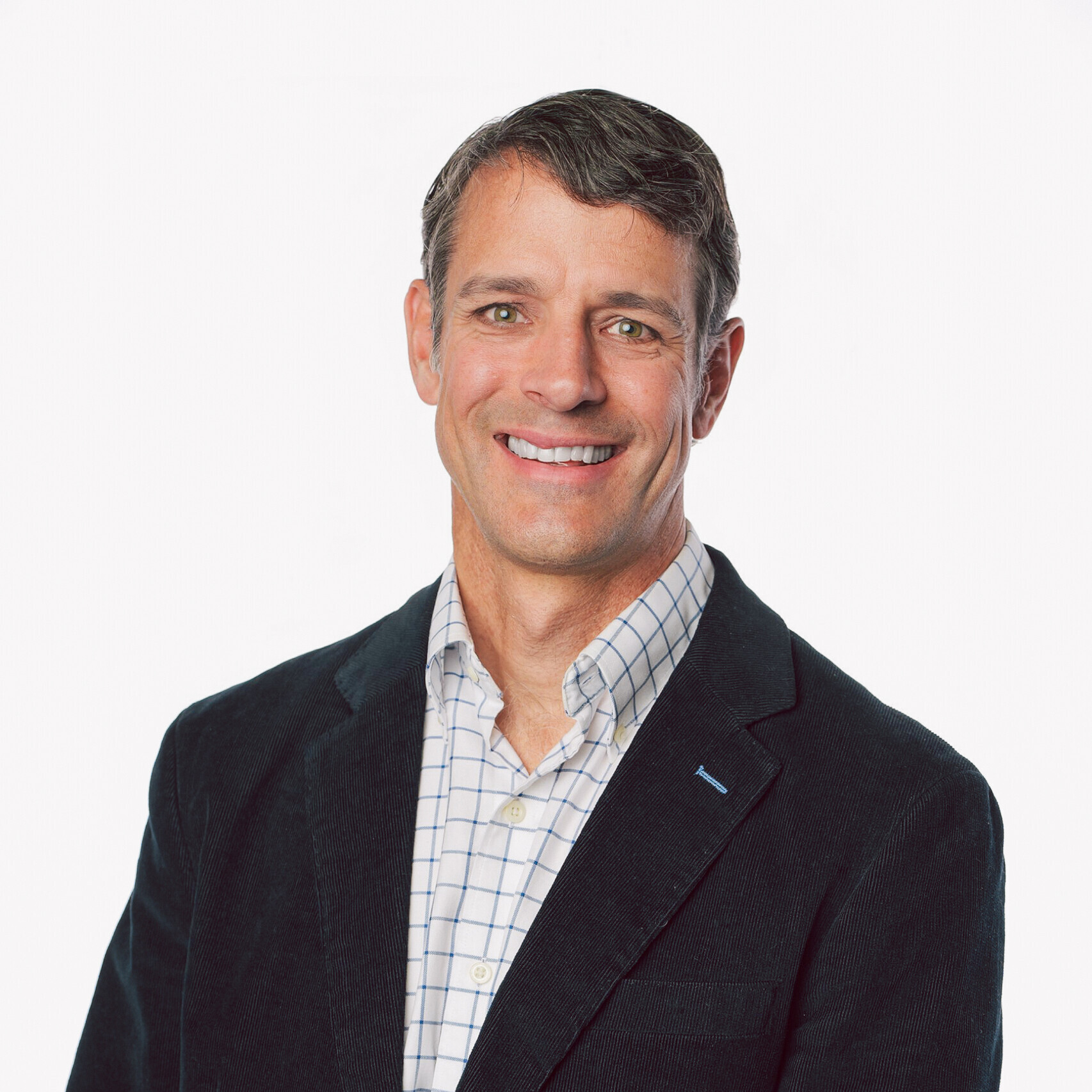




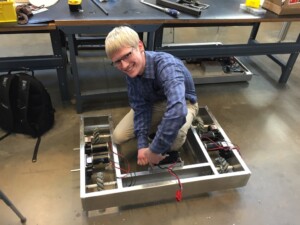
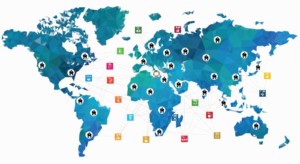
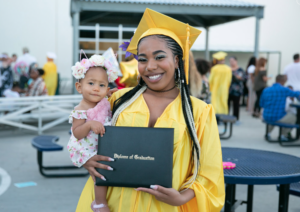

0 Comments
Leave a Comment
Your email address will not be published. All fields are required.